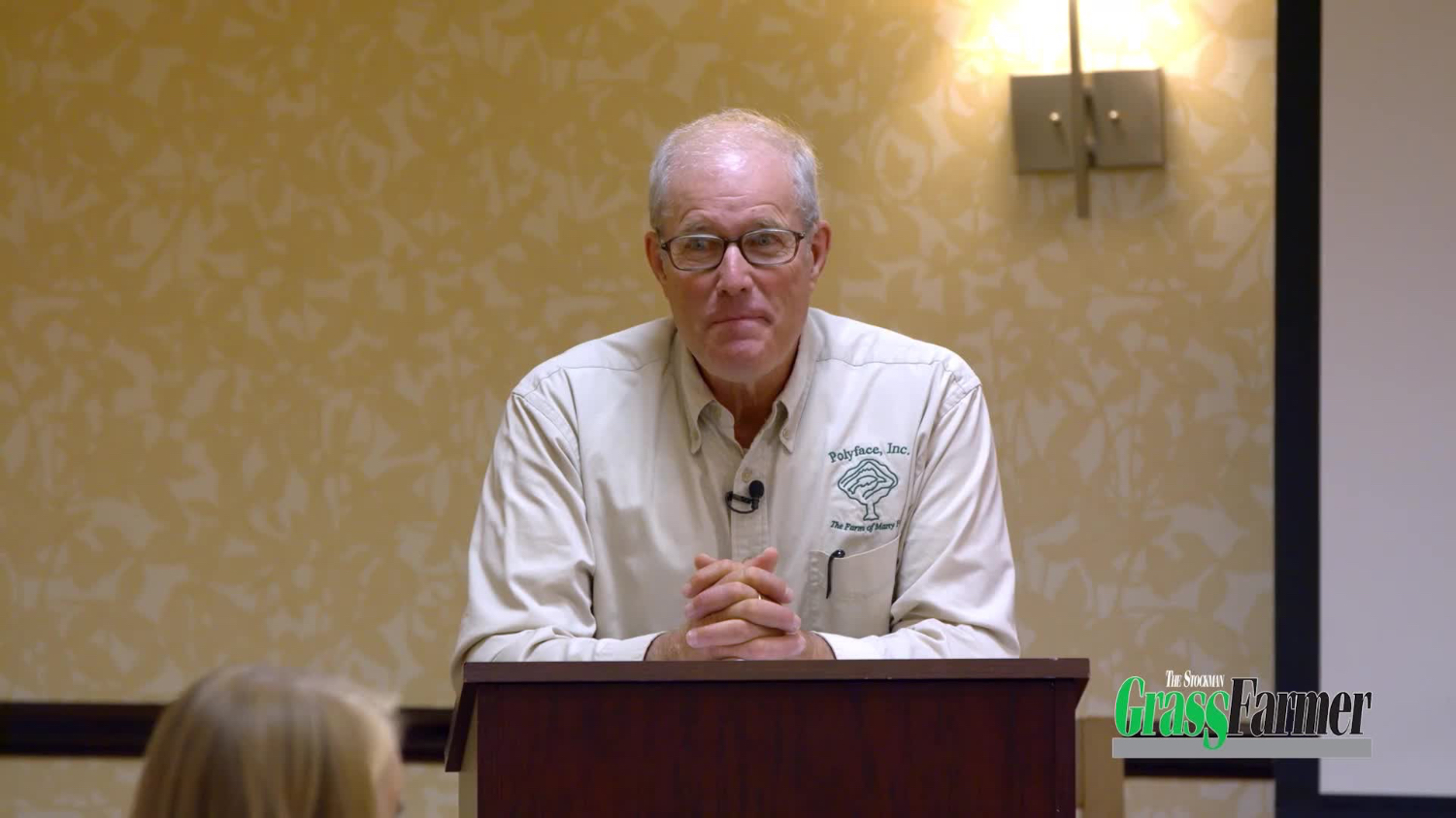The Economist Farmer By Grant Estrade BOGALUSA, Louisiana:
As regenerative farmers we easily fall into the trap of wanting to save the world and taking market share away from those who we see as the bad actors in agriculture.
In that trap we spend our mental energy focused on external forces and building a house of cards growth strategy. This longing for unsustainable growth plays out in our relation- ships, possessions, aspirations and work life.
The trick is finding a state of balanced progress when deciding how big you want your farm to be. We should actively desire bigger and better while having the discipline to maintain the farm’s profitability, our well-being, and our relationships in top shape and efficiency.
The dilemma of maintenance ver- sus progress and efficiency versus growth plays out in our life every day from the car we drive to our relationships. Whenever I find myself look- ing for more acreage to purchase, I remind myself that we have sections of fence to fix on the acreage we currently own. I promise you that I’d rather be researching more land to purchase than fixing fence.
This dilemma arises in our farm business constantly. Sometimes we get so focused on increasing gross revenue we work long hours just to realize we lowered our net profit as a result, and the extra hours of hard work proved to be futile. But on the other hand, sometimes in order to purchase a new piece of equipment we must increase production and hire staff. The challenge is to balance and find the sweet spot.
In entrepreneurship, there are two popular schools of thought on how to approach growing your business. One is that you’re a “self-employed professional” who “works in the business,” and the other is that you’re a “business owner” who “works on the business.” These two concepts should not be viewed as opposition- al, but as symbiotic and dynamic. They’re more Yin/Yang than reductionist concepts.
Unfortunately, many entrepreneurial business books romanticize and idolize the concept of “you’re not an entrepreneur unless you systemize your business while utilizing OPM (other people’s money) and OPT (other people’s time)”. In the past twenty years of being in the “local agriculture” business world, it’s my observation that the folks who fail either underproduce or overproduce, and don’t know when it’s time to be the self-employed professional or the business owner. My recommendation? Think like an economist.
The secret to becoming your own farm economist is to study the terminology. Before you make a major decision and/or work on your long-term goals, ask yourself how the terms below apply to your situation:
1) Growth versus Scale: Both growing and scaling display outward progress, but they’re quite different. Essentially growth is progress supported by an injection of outside resources such as a loan, share sales, etc. For example, your herd size was able to grow because you took out a loan to purchase more land.
Scaling is progress made by the efficient use of current available resources that aren’t leveraged. For example, your herd size was able to grow because you moved from continuous grazing to rotational grazing. Your farm business will constantly cycle in and out of patterns of both growing and scal- ing. The two most important things to know is that no business can survive white hot growth fueled by borrowed resources, on the other hand, no business can get off the ground without outside resources.
2) Production Capability versus Sales Capability: Just because you can produce it doesn’t mean that you can sell all of it at the price that you need to get for it. Before committing to a certain piece of equipment or a piece of land make sure there is not a fatal bottleneck. Many of us are establishing a direct-to-consumer market in our areas and are the first to market. It’s important to let the market lead your progress, and prac- tice incremental production based on your sales capability.
3) Diminishing Return: One of the death blows in production is to go from a profit per unit produced to a loss per unit produced. Every time a new employee is hired, every time a piece of equipment is purchased, production must stay in lockstep, but at any point one more piece of equip- ment or one more employee may create financial hemorrhaging.
Most of us want to feed the world with regenerative farming. While that is a multi-generational long-term goal, we must focus on the proper scale, efficiency, profitability, and quality of life on our own farm today. I totally realize that thinking and behaving in terms of an economist may not make you the most exciting person at the party, but you’ll need to leave the party early anyway because you’ve got a successful farm business that calls you to get up early.
Grant Estrade, along with his wife Kate, own and operate Laughing Buddha Nursery and Local Cooling Farms in Louisiana. Along with full time farming, Grant is a certified Zig Ziglar coach and trainer. Contact Information: 504-234-3564, grant. estrade@gmail.com, www.laughing- buddhanursery.com
Grant joined Joel Salatin for a SGF’s Smart and Special School …


